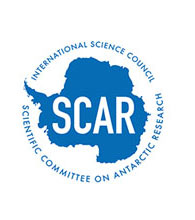THEME 3
ANTARCTIC CONTRIBUTION TO SEA LEVEL CHANGE & SCIENCE-STACKEHOLDERS INTERACTIONS
12. What controls the stability of ice shelves and grounding line migration in general and are there thresholds?
13. How much do we decrease projection uncertainties of coupled modelling efforts with new validations?
14. What was the rate of ice mass change during past warmer-than-present interglacials, and what are the implications for ice sheet sensitivity and future projections?
15. What is the response of the AIS to future climate forcing scenarios and what is the impact of AIS melting on global climate?
16. How do the current socio-economic and political realities impact on the research outputs? Are there specific feedback loops that would enable a significant shift in outcomes?
17. What is public and stakeholders’ current understanding of the amount, rate, timing and causal mechanism of sea level rise?
18. How would socio-environmental scenarios about the projected futures facilitate a better engagement with this research by stakeholder groups?
19. What are the key lessons arising from research into science communication that would be of most benefit in communication with stakeholder groups?
SUB-COMMITTEES
LEADERSHIP:

Rebeca PRIESTLEY
Centre for Science in Society, Te Herenga Waka Victoria University of Wellington (NZ)



